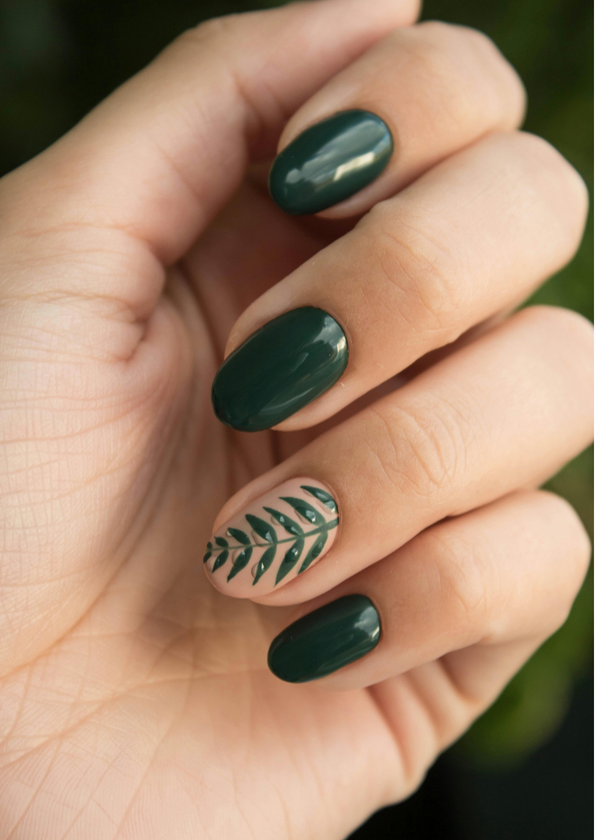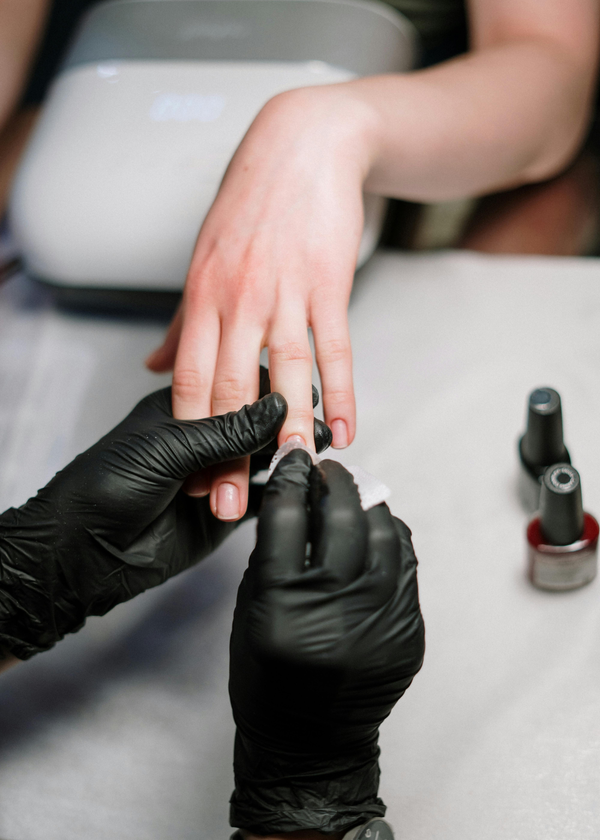Niacinamide, a versatile and increasingly popular ingredient in the skincare world, has been making waves for its multifaceted benefits. But what does niacinamide do for your skin, exactly? This comprehensive guide delves into the science behind niacinamide and how it can transform your skin health.
The Science of Niacinamide and Skin Health
Niacinamide, also known as nicotinamide, is a water-soluble vitamin that works with the natural substances in your skin to help visibly improve enlarged pores, uneven skin tone, fine lines and wrinkles, dullness, and a weakened surface.
As an active form of vitamin B3, niacinamide is a powerhouse ingredient that supports numerous cellular processes. It plays a crucial role in helping to repair damaged DNA and combat the oxidative stress that can lead to premature skin aging.
Niacinamide's Role in Improving Skin Barrier Function
One of the primary benefits of niacinamide is its ability to improve skin barrier function. This is particularly beneficial for those with sensitive skin, as a strong barrier helps to keep irritants out and moisture in.
Improved skin barrier function means your skin is better equipped to fight off environmental stressors that can lead to inflammation and skin concerns.
The Impact of Niacinamide on Skin Texture and Tone
Regular application of topical niacinamide has been shown to significantly improve skin texture, resulting in smoother, more refined skin.
It also has brightening effects, helping to fade dark spots and even out skin tone. These benefits make niacinamide an excellent addition to any skincare routine aimed at achieving a radiant, youthful complexion.
Niacinamide and Acne: A Potent Combination
For those with acne-prone skin, niacinamide can be a game-changer. Its anti-inflammatory properties help to treat acne by reducing the redness and swelling associated with breakouts. Additionally, niacinamide can regulate oil production, which can prevent the clogged pores that often lead to acne.
Anti-Aging Benefits: Fine Lines and Wrinkles
Niacinamide's ability to boost collagen production is a significant factor in its anti-aging properties. By supporting the skin's collagen network, niacinamide helps to improve skin elasticity and reduce the appearance of fine lines and wrinkles, making it a valuable component in any anti-aging skincare regimen.
Niacinamide for Sensitive and Rosacea-Prone Skin
Sensitive and rosacea-prone skin types can benefit greatly from niacinamide's soothing effects.
Its anti-inflammatory properties help to reduce inflammation and redness, providing relief from the symptoms of inflammatory skin conditions.
Niacinamide and Hydration: Quenching Thirsty Skin
Have you ever felt like no matter how much water you drink, your skin still feels like the Sahara Desert? Well, niacinamide might just be the oasis your skin care routine has been searching for.
This water-soluble vitamin is a hydration hero, working to improve skin barrier function, which in turn helps to retain moisture. Think of it as a personal bodyguard for your skin cells, keeping the bad guys (irritants) out and the good guys (hydration) in.
It's particularly beneficial for those with dry skin, who may notice a significant improvement in skin suppleness and overall hydration levels.
But it's not just dry skin that can benefit from niacinamide's hydrating properties. Acne-prone skin, often subjected to harsh acne treatments like benzoyl peroxide, can become stripped of moisture and irritated.
Niacinamide steps in with its anti-inflammatory effects to soothe and calm the skin, while also ensuring that the skin's hydration levels are optimized. This balancing act is crucial in any skin care regimen, as it helps to maintain a healthy skin environment where acne is less likely to thrive.
Niacinamide's Compatibility with Various Skin Types
Have you ever wondered if niacinamide is suitable for your skin type? Well, the good news is that this water-soluble vitamin is incredibly versatile.
Whether you have dry, oily, or combination skin, niacinamide works harmoniously to improve skin barrier function. This is particularly beneficial for those with acne-prone skin, as a robust skin barrier can help keep irritants at bay and reduce the likelihood of breakouts.
Moreover, individuals with sensitive or rosacea-prone skin can rejoice in the gentle nature of niacinamide.
Its anti-inflammatory properties help soothe the skin and manage redness, making it a go-to ingredient in many skin care products aimed at calming reactive skin. So, regardless of your skin type, incorporating niacinamide into your skincare routine could be a game-changer for achieving a balanced and healthy complexion.
Niacinamide: A Boon for Acne-Prone Skin
Have you ever wondered why niacinamide is a buzzword in the realm of acne-fighting ingredients? It's because this water-soluble vitamin is a superhero for acne-prone skin.
Its anti-inflammatory properties work wonders in reducing the redness and swelling associated with breakouts, making it a go-to skin care ingredient for those battling with acne. Not only does it help calm the skin, but niacinamide also improves skin barrier function, which is crucial in protecting against environmental stressors that can trigger more acne.
Moreover, niacinamide's ability to regulate oil production is a game-changer for those with oily and acne-prone skin. By keeping the sebum levels in check, it prevents the pores from becoming clogged and reduces the chances of developing new pimples.
This makes niacinamide an excellent addition to any skincare routine aimed at maintaining clear and healthy skin. Its versatility allows it to be paired with other acne treatments, enhancing their effectiveness and providing comprehensive care for acne sufferers.
Niacinamide's Anti-Inflammatory Properties: A Boon for Acne and Rosacea Prone Skin
When it comes to acne prone skin, the anti-inflammatory properties of niacinamide can be a game-changer. This water-soluble vitamin works wonders by reducing the redness and swelling that often accompany breakouts.
Its ability to regulate sebum production means that it not only helps in calming existing acne but also prevents new pimples from forming. For those struggling with the cyclical nature of acne, niacinamide offers a ray of hope, providing a more balanced and clear complexion over time.
Rosacea prone skin also benefits immensely from niacinamide's soothing effects. The discomfort and appearance of rosacea are often exacerbated by inflammation. Niacinamide steps in as a gentle yet powerful ally, diminishing the redness and bumps associated with the condition.
By reinforcing the skin's barrier function, it further protects sensitive skin from environmental stressors that can trigger rosacea flare-ups. This makes niacinamide a valuable ingredient in the skincare arsenal for managing both acne and rosacea effectively.
The Role of Niacinamide in Anti-Aging Skincare Regimens
Niacinamide's prowess extends into the realm of anti-aging, where its benefits are equally impressive. As an anti-aging agent, niacinamide helps to improve skin elasticity and diminish the appearance of fine lines and wrinkles.
Its ability to boost collagen production means that it not only addresses the current signs of aging but also works to prevent future damage. This proactive approach to skincare is what makes niacinamide a staple ingredient for those looking to maintain a youthful glow.
Moreover, the anti-inflammatory effects of niacinamide play a crucial role in slowing down the aging process.
Inflammation can accelerate aging by breaking down collagen and impeding the skin's natural repair mechanisms. By mitigating inflammation, niacinamide helps to preserve the skin's resilience and vitality.
This dual action of promoting repair and protecting against damage solidifies niacinamide's status as a cornerstone in anti-aging skincare routines.
The Anti-Aging Efficacy of Niacinamide
When it comes to anti-aging, niacinamide is a force to be reckoned with. Its anti-inflammatory effects contribute to its ability to diminish the signs of aging, such as fine lines and wrinkles.
As an anti-aging powerhouse, niacinamide works by boosting collagen production, which is essential for maintaining skin elasticity and firmness.
This water-soluble vitamin also has the ability to fade age spots and improve skin texture, giving the skin a more youthful and radiant appearance.
But the benefits of niacinamide don't stop there. It also helps to protect the skin from oxidative stress and environmental damage, which are significant contributors to premature aging.
By reinforcing the skin's barrier function, niacinamide ensures that the skin retains moisture better, which is vital for keeping the skin plump and minimizing the appearance of wrinkles. Regular use of niacinamide-infused products can lead to visibly rejuvenated skin, making it a must-have ingredient in any anti-aging skincare arsenal.
The Versatility of Niacinamide in Product Formulations
Niacinamide's flexibility extends beyond skin types; it's also a star player in various product formulations.
From serums to moisturizers, and even in supplement form, this anti-aging champion can be found enhancing the efficacy of countless skin care products. Its ability to work in synergy with other active ingredients makes it a valuable addition to both morning and evening skincare regimens.
When it comes to acne treatment, niacinamide is often formulated alongside other acne-fighting ingredients to boost its anti-inflammatory effects and aid in skin hydration.
This collaborative approach not only targets acne but also addresses post-inflammatory hyperpigmentation and scarring. As a result, niacinamide is not just a solitary hero but also an excellent team player in the world of skincare ingredients.
The Synergy of Niacinamide with Other Active Ingredients
When it comes to skin care, it's all about teamwork. Niacinamide is like the versatile player in your skin care regimen that gets along with everyone. For instance, pairing niacinamide serum with folic acid, another member of the vitamin B family, can lead to even more noticeable improvement in brightening skin tone and tackling skin sallowness.
This dynamic duo works together to give you that coveted glow without causing irritation, making it suitable for all skin types, including sensitive and rosacea-prone skin.
But wait, there's more! Niacinamide also plays well with anti-aging heavy hitters like green tea, which boasts anti-inflammatory properties and a rich antioxidant profile. When used in conjunction with niacinamide, green tea can enhance the anti-inflammatory effects and help to protect aging skin from environmental stressors.
This combination can be particularly effective in a topical application, creating a skin care cocktail that addresses multiple skin care concerns at once, from fine lines to redness, without overwhelming the skin.
Combining Niacinamide with Other Skincare Ingredients
Niacinamide pairs well with other skincare ingredients like hyaluronic acid, salicylic acid, and glycolic acid.
However, it's important to be cautious when using niacinamide with vitamin C, as this combination can sometimes lead to skin flushing and irritation.
Niacinamide Supplements and Oral Intake
While topical niacinamide is common in skincare products, oral niacinamide supplements are also available. These can provide skin benefits from the inside out, but it's essential to be aware of the potential for liver toxicity with high doses. Always consult with a healthcare provider before starting any new supplement regimen.
How to Incorporate Niacinamide into Your Skincare Routine
Adding niacinamide to your skincare routine is simple. Look for serums, moisturizers, and other topical preparations that contain this ingredient. It's generally well-tolerated by all skin types, but as with any new skincare product, it's wise to perform a patch test first.
The Long-Term Effects of Niacinamide on Skin
Consistent use of niacinamide over time, typically around eight weeks, can lead to noticeable improvements in skin appearance. From hydrated skin to a reduction in sun damage, the long-term benefits of niacinamide are well-documented and supported by further research.
Niacinamide's Role in Skin Cancer Chemoprevention
Emerging studies suggest that niacinamide may have a role in skin cancer chemoprevention. Its DNA repair and immune-boosting properties could potentially protect skin cells from UV damage and reduce the risk of skin cancers.
Potential Side Effects and Considerations
While niacinamide is generally safe for most people, some may experience an allergic reaction or irritation. It's important to start with a lower concentration and gradually increase as your skin becomes accustomed to the ingredient.
The Future of Niacinamide in Skincare
As research continues to uncover the extensive health benefits of niacinamide, its popularity in skincare is only expected to grow. With its ability to address a wide range of skin concerns, niacinamide is poised to remain a staple in skincare regimens for years to come.
FAQs
Q: Can niacinamide be used daily?
A: Yes, niacinamide can be used daily as part of your skincare routine. It's gentle and typically well-tolerated by most skin types.
Q: Are there any skin types that should avoid niacinamide?
A: Niacinamide is generally safe for all skin types. However, if you have extremely sensitive skin or a known allergy to niacinamide, it's best to consult with a dermatologist before use.
Q: How long does it take to see results from using niacinamide?
A: While some immediate benefits may be noticeable, such as improved hydration, it typically takes about eight weeks of consistent use to see significant changes in skin texture, tone, and appearance.
Summary
Niacinamide is a versatile and effective skincare ingredient that offers a multitude of benefits for the skin. From improving barrier function and texture to treating acne and reducing signs of aging, niacinamide can make a significant difference in skin health. It's suitable for all skin types and can be easily incorporated into any skincare routine. With consistent use, niacinamide can lead to a visibly healthier, more radiant complexion.








